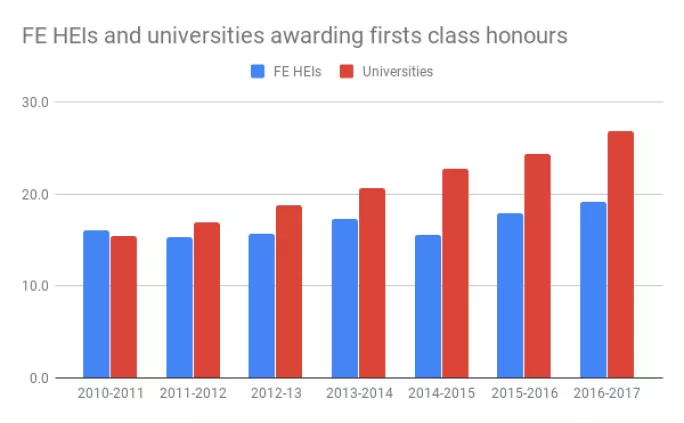Colleges that offer higher education courses are awarding top marks to fewer candidates compared with universities, research shows.
The Office for Students has published figures that show from 2010-11 to 2016-17 the percentage of first-class degrees has increased from 16 per cent to 27 per cent.
However, the figure has remained more static for FE college higher education institutions (HEIs), increasing from 16.1 per cent to 19.1 per cent.
'Spiralling' grade inflation
Commenting on the report, Nicola Dandridge, chief executive of the Office for Students, said that it is fundamentally important that degrees hold their value over time.
She added: “This spiralling grade inflation risks undermining public confidence in our higher education system.
“We absolutely recognise how hard students work for their degrees, and accept that improved teaching and student support, and increases in the qualifications students gain before university, could explain some of the increase in grades. However, even accounting for prior attainment and student demographics, we still find significant unexplained grade inflation.”
Issue 'requires further investigation'
However, NUS vice-president for HE Amatey Doku said: “This issue requires further investigation. We should avoid rushing to conclusions about unexplained grade inflation, particularly if that undervalues the hard work and effort that students are putting in.
“The government, in particular, wants to deflect attention from the consequences of a marketised system where students are more aware of failure than ever, and we need to place a greater focus on the ever-increasing reports of poor mental health among students.”






